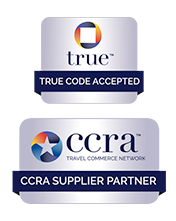Here are simple ethical travel responsibility guidelines that tourists, tour operators and hotels should follow in order to minimize the economic, social and environmental impact that tourism might cause.
GREEN TRAVEL
- Choose operators, hotels and other providers that are interested on the ethical treatment of local development issues, responsible tourism and sustainable projects.
- Reduce paper waste:
- Don’t read the newspaper:
Some hotels provide free newspapers to guests. However, ask yourself if you really have time to read it and if the answer is no, choose not to have a paper delivered to your door.
o Don’t take or accept unnecessary information or advertising material:
If travelling in a couple or in a family, one city map per party it’s all you really need. The same applies to brochures, free information magazines, etc. If when leaving the country you decide not to take these materials back home, please let know your guide of your intentions and turn them back for recycling purposes. Don’t just leave them in the vehicle or hotel room; they will end on regular garbage. If when arriving back home you realize all your paper mementos are no longer interesting, please recycle.
- Avoid plastics:
- Don’t buy water bottles every time you are thirsty.
Although in most places we recommend drinking only bottled water, try to use your personal drinking bottles or refill prior bottles from a larger container. Remember that plastic recycling programs and facilities are not available everywhere you are visiting, and every single plastic bottle you use will end on the regular dumpster.
o Don’t take the toiletries home
It’s often a temptation to stuff the toiletries provided into your luggage. Whether the miniature size is appealing or it’s just the idea of free toiletries, guests will often clear out the bathroom before they leave. However, keep in mind that every bottle of shampoo you take is one more that the hotel has to provide for the next guest. While the price of toiletries is included in your room rate, every bottle the hotel uses requires precious resources, and the manufacturing process will pollute the environment. Additionally, miniature bottles often equate to more packaging, which will eventually end up in landfills. Resist the temptation to take the toiletries home, or go one step further and bring your own toiletries on your travels.
-
- Don’t be individualist
- Don’t be individualist
Avoid individually packaged objects (prefer larger tissue boxes to pocket packages e.g.) and unnecessary plastic bags when shopping groceries or handicrafts.
- Reduce electricity usage:
- Switch off the lights
Check to make sure the lights are off when you leave the room. When you’re in your room, turn off all unnecessary lights to reduce your environmental footprint.
o Turn up the thermostat
Hotels typically use a central air conditioning system, but guests can choose to switch the air conditioning off, particularly when they leave the room. Alternatively, adjust the thermostat (up in summer, down in winter) to reduce your carbon footprint.
- Reduce water usage:
o Don’t change the towels
Most hotel staff is trained to change your towels every day. However, the ecological impact of washing all the towels daily, including bath-, hand-, and face towels as well as the bath mat is astronomical. Aside from all the water needed, the detergents and bleach used to keep the towels snowy white are also highly detrimental to the environment. Most hotels encourage guests to leave their towels in the bathtub if they want them changed, and to leave them on the towel rails otherwise. Green your hotel stay by leaving your towels on the rail. If the hotel does not offer this option, please warn the front desk of your decision
o Shower, don’t bathe
Hotel rooms sometimes come with bathtubs, and some even provide luxurious bubble baths or bath salts. While one often feels in need of a pampering when traveling, the same principles of water conservation should apply when you’re away from home. According to the British Environment Agency, a five-minute shower uses about a third of the water of a bath, and can save up to 50 liters of water every time. Vote green and shower instead of having a bath.
- Take only memories leave only footprints.
o There’s no better place for a stone, feather, branch, flower, shell, insect or any other “collectible” you might be fond of, than the place where you found it. Please avoid the temptation of taking it with you, leave it where it belongs.
o Do not buy handicrafts or products made out of feathers, bones, fur or any other material that might encourage natural species trafficking. Make sure that objects mentioned as part of sustainable development projects involving any of the above are so.
o Remember: Garbage in garbage out.
- Use Eco-friendly camping if you are sleeping outdoors
ETHICAL TOURISM
- Get advice on local cultural etiquette.
- Avoid giving money to people (especially children) for the sake of pictures e.g.; If you do so, be sure that you are creating beggars and “pick-pockets” for the future. Nevertheless, tips and donations for a well done job are strongly encouraged and welcome.
- Don’t judge local practices and culture, after all that’s why you travel, to learn and share the similarities and differences.
- Visit grassroots projects with community or environmental benefits.
- Visit local markets, restaurants, bars, hotels, home stays or kiosks/shops as opposed to large chains.
- Contribute money, time or other resources to a sustainable community development project in the local area.
- Make sure your tour operator recruits only certified local guides and pay fairly, this will encourage education, hence progress.
- Advise on current issues in the local area
- Do not encourage unethical or illegal behavior in locals: Avoid by all means and if possible denounce under age drinking or smoking, illegal drugs abuse, children prostitution or any other activity that would be considered illegal and unethical in your own country
Recent Posts
Recent Comments
- Júlio Emílio on ANDEAN TRAIN and INCA RUINS
- Isabel on Cuenca Service Catalogue
- Larry Jerdon on SLT Ecuador- Nominados a los Luxury Travel Global Awards 2016
- Ron on Galapagos at unbeatable price!
- - South Land Touring Ecuador on Contact us
Archives
Categories
- Amazon
- Andes
- birdwatching tours
- Blog
- cloud forest lodges
- cloud forest lodges
- Coast
- Community / Sustainable tourism
- cruises
- cuenca and surroundings
- easy access jungle lodges
- family trips
- Featured
- first
- first class lodges
- Galapagos
- guayaquil & surroundings tours
- guayaquil and surroundings
- horseback riding
- horseback riding tours
- jungle lodges
- loja & saraguro & vilcabamba
- mountain biking tours
- multi-sport adventures
- multi-sports and adventure
- northern and central andes
- quito & surroundings
- river boats
- southern andes
- tourist
- tourist superior
- tourist superior lodges
- trekking & hiking tours
- Uncategorized



